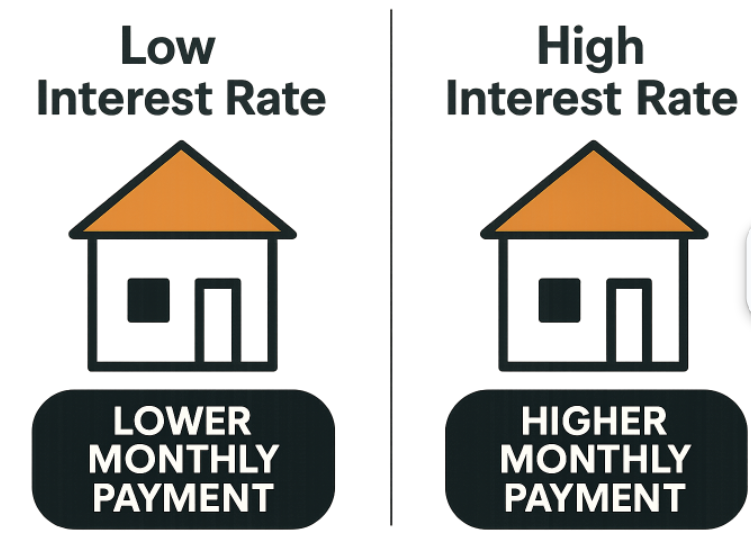Starting a small business is both exciting and challenging. While the idea of launching your own venture brings a sense of freedom and creativity, navigating the legal and administrative requirements can feel overwhelming.
One of the most important questions every entrepreneur faces is “How do I register my small business?”. Getting this step right ensures your business is recognized by law, protects your personal assets, and opens the door to financial and legal benefits.
In this guide, we’ll walk you through every step involved in registering a small business, providing a clear roadmap to follow.
Choose the Right Business Structure
Selecting the right legal structure is the first and most important step. The structure you choose affects your taxes, personal liability, and the paperwork you’ll need to file. The main types include:
- Sole Proprietorship: The simplest structure. You and your business are legally the same entity, meaning you’re personally responsible for debts and liabilities. It’s easy to set up, but it doesn’t offer liability protection.
- Partnership: Ideal if two or more people are involved. Partners share profits, responsibilities, and liabilities. You’ll need a partnership agreement to outline roles and profit distribution.
- Limited Liability Company (LLC): Combines liability protection with flexible taxation. Your personal assets are generally protected, and you have fewer formal requirements than a corporation.
- Corporation (C-Corp or S-Corp): A separate legal entity from its owners. It provides strong liability protection but involves more paperwork, stricter compliance, and potential double taxation for C-Corps. S-Corps allow profits to pass through to personal tax returns, avoiding double taxation.
Choosing the right structure depends on your business goals, risk tolerance, and long-term plans. Consulting a legal or tax professional can help you make the right choice.
Pick a Business Name
Your business name is one of your most important assets—it represents your brand and can influence customers’ first impressions. When picking a name:
- Ensure it’s unique and not already in use by another business.
- Check if the domain name is available for your website.
- Make sure it follows your state’s naming rules and regulations.
In Illinois, for example, you can check name availability through the Secretary of State’s office to avoid conflicts with existing businesses.
Register Your Business Name
If you’re operating under a name other than your personal name, you’ll need to register a “Doing Business As” (DBA) name. This officially allows your business to operate under your chosen name. The process generally involves:
- Filing with your county clerk’s office.
- Paying a small registration fee.
- Sometimes, publishing a notice in a local newspaper (requirements vary by location).
Registering a DBA ensures that your business name is legally recognized and protects it from being used by someone else in your area.
Obtain an Employer Identification Number (EIN)
An Employer Identification Number (EIN) is a unique number issued by the IRS to identify your business for tax purposes. You’ll need an EIN to:
- File federal taxes.
- Open a business bank account.
- Hire employees.
- Apply for business licenses and permits.
Applying is simple and free through the IRS website, and you usually receive your EIN immediately after completing the online application.
Register with State and Local Agencies
Most states require businesses to register with specific agencies. In Illinois:
- Illinois Secretary of State: Required for LLCs, corporations, and limited partnerships.
- Illinois Department of Revenue: Needed if your business will collect sales tax or have employees.
- Local city or county offices: Required for certain business licenses and permits.
Each agency may have different forms, fees, and processes. Checking early ensures you comply with all requirements before you start operations.
Apply for Necessary Licenses and Permits
Your business type and location determine which licenses and permits you’ll need. Common examples include:
- Business licenses: Required by most local governments.
- Professional licenses: Necessary for specific occupations like healthcare providers, attorneys, or contractors.
- Health permits: Required for businesses handling food or beverages.
- Sign permits: Needed if you plan to display a business sign outside your location.
Not having the correct permits can result in fines or even business closure, so make sure to check with your local authorities and industry associations.
Open a Business Bank Account
Separating your personal and business finances is essential for bookkeeping, taxes, and legal protection. To open a business bank account, you’ll typically need:
- Your EIN.
- A copy of your formation documents (LLC, corporation, or partnership).
- Your DBA registration (if applicable).
Having a dedicated business account helps you track expenses, manage cash flow, and maintain credibility with clients and vendors.
Understand Your Tax Obligations
Understanding taxes is critical to avoiding penalties and ensuring financial stability. Depending on your business structure, you may need to pay:
- Income tax: Based on your profits.
- Self-employment tax: Covers Social Security and Medicare for sole proprietors and partners.
- Sales tax: If you sell goods or certain services.
- Employment taxes: If you hire employees.
Consulting a tax professional or accountant can help you understand your obligations and take advantage of any deductions or benefits.
Comply with Employment Laws
If you plan to hire employees, it’s vital to comply with labor laws. This may include:
- Workers’ compensation insurance: Required in most states.
- Unemployment insurance: For laid-off employees.
- Posting requirements: Displaying labor law posters in the workplace.
Failure to follow employment regulations can result in legal penalties, so take the time to understand your responsibilities.
Maintain Ongoing Compliance
Registering your business is only the beginning. You must stay compliant by:
- Filing annual or biennial reports.
- Renewing licenses and permits on time.
- Keeping accurate financial records.
- Staying updated on changes in business regulations.
Regularly reviewing your operations ensures your business remains in good standing and avoids potential legal or financial issues.
The Bottom Line
Registering your small business correctly is the first step toward long-term success. From selecting the right business structure to securing licenses and staying compliant with tax and employment regulations, every step matters.
By following this guide, you can confidently navigate the registration process and focus on what really matters—growing your business.
Read More: Why NetSuite Is a Lifesaver for Companies with Complex Inventory?




